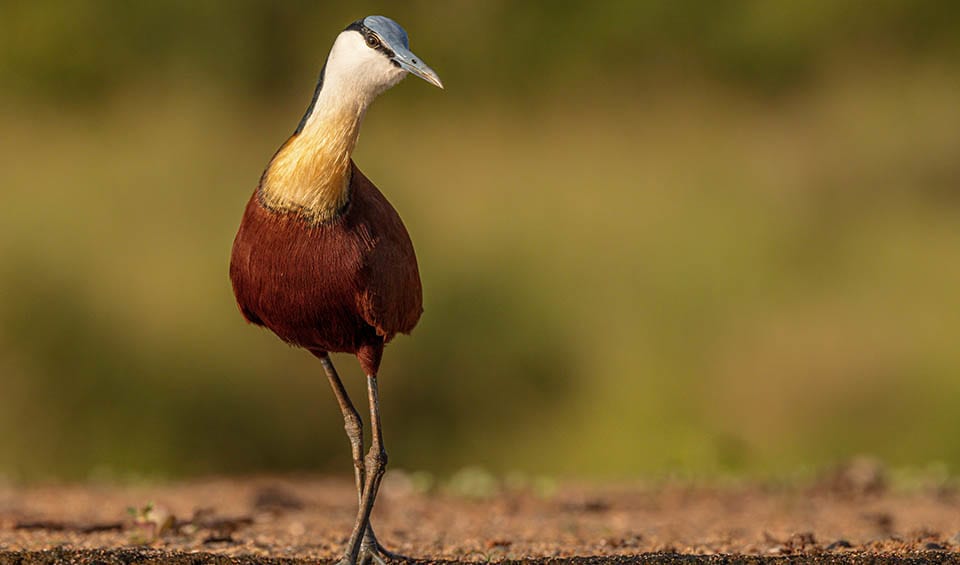Actophilornis
Sometimes called "lily trotters" or "Jesus birds" for their miraculous walking-on-water abilities
This genus includes some of the most fascinating birds found in freshwater wetlands across parts of Africa and Asia. These jacanas are renowned for their extraordinary talent for walking on floating vegetation. With their long, slender legs and large feet, they deftly navigate lily pads and other aquatic plants, giving the impression that they are gliding effortlessly across the surface of the water. Their colorful plumage and unique adaptations make them a captivating sight in their natural habitats, where they skillfully maintain balance on delicate leaves while foraging for insects and seeds.This illusion is made possible by their extremely long toes and claws, which spread out their weight evenly and allow them to balance on lily pads and other aquatic plants.
One of the most interesting traits of Actophilornis species is their unusual approach to parenting. Unlike many bird species where females take the lead in caring for the young, it’s the males who are in charge here. Female jacanas are larger, more aggressive, and often have multiple mates. After laying eggs, the female moves on, while the male takes over incubation and chick-rearing duties. He will carefully tend to the eggs, even going so far as to tuck them under his wings and carry them around when necessary.
Another distinctive feature of these birds is how well they’ve adapted to life on water. They are not strong fliers, and they prefer to stay close to water bodies where they forage for insects and other small invertebrates on the surface of plants. Their calls are sharp and sometimes sound like squeaky toys, making them easy to identify if you’re ever near a wetland. They often seem unbothered by their surroundings, moving gracefully across the water’s surface in search of food, even during the hottest parts of the day.
Species in this genus
Madagascar jacana
“Jesus bird” of Madagascar
African jacana
Chicks are skilled swimmers and divers, able to paddle through the water just hours after hatching



